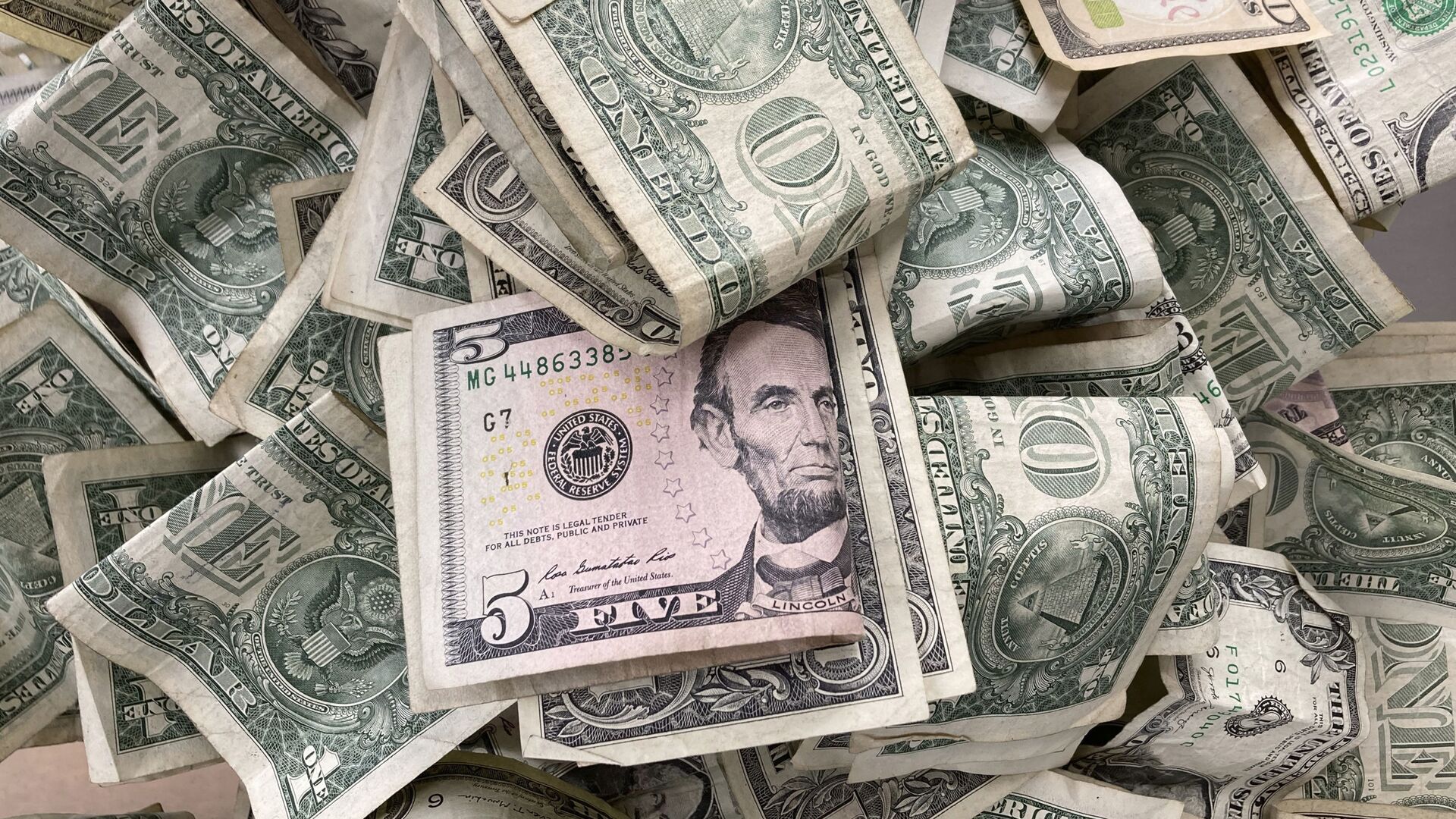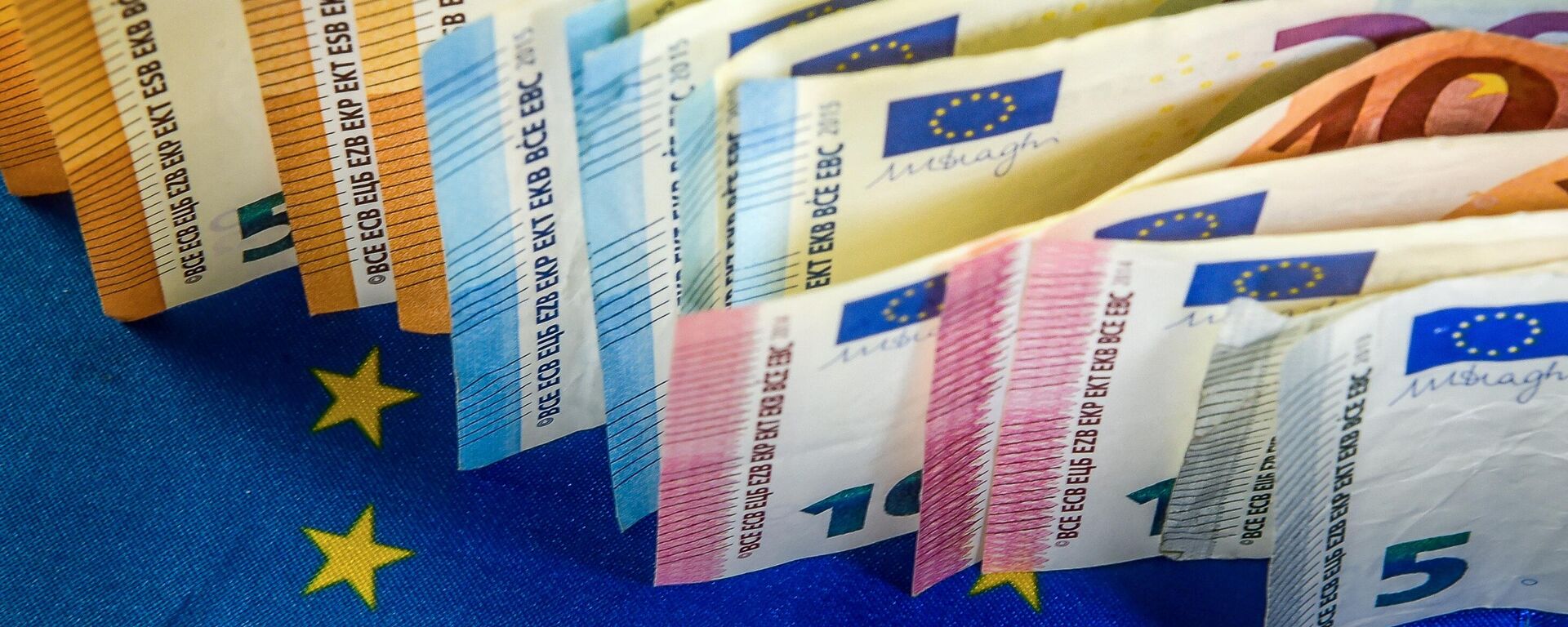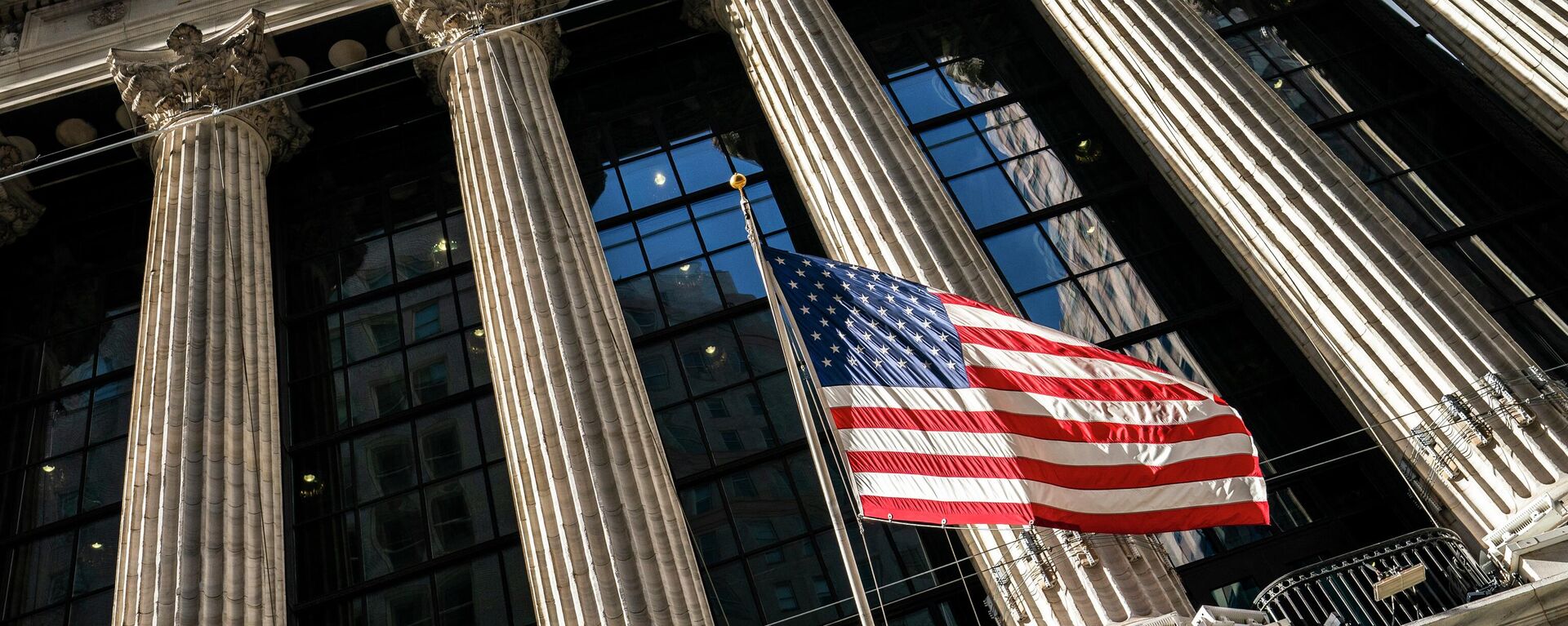How the US Fed Rate Hike May Backfire on Global Economy

© AP Photo / Mark Lennihan
Subscribe
The US Federal Reserve is forecast to keep hiking interest rates until it peaks in March 2023 at 4.26%, prompting concerns that the tightening will drag the country deeper into recession, according to CNBC. The media's survey indicated the average respondent expects the Fed will hike 0.75 percentage points, or 75 basis points, on September 21.
"The US is already in a recession as defined by gross domestic product (GDP) contraction," explained Tom Luongo, a financial and political commentator. "Any financial crisis that will be engendered by the Fed’s actions here will happen overseas first. Then there will be blowback on the US markets. The Fed has clearly set the table to assist US banks in getting through what’s just over the horizon while clearly telling the rest of the world that they are on their own."
The US Federal Reserve opted to hike interest rate in response to soaring inflation, which maintains a 40-year high regardless of the Fed's measures. Prior to the Fed's move, Kristalina Georgieva, managing director of the International Monetary Fund, warned the Davos Summit in January that US interest rate hikes could backfire on the global economy. She noted at the time that countries with higher levels of dollar-denominated debt would be hurt the most, adding that two-thirds of low-income countries were either in "debt distress" or at risk of falling into it.
However, it appears that developed countries have also fallen victim to the US Fed's policy: as the recession fears loom and the greenback grows stronger, bond and equity traders are running into the US currency, thus undermining the euro, euro-zone bonds, the Japanese yen and the British pound, according to Luongo.
"Eurodollar futures are finally realizing the Fed is serious and will raise rates higher and for longer than many anticipated," the financial commentator says. "Until the markets become fully convinced of this idea, we will see dollar strength draining energy from all dollar-opposed markets – euro, gold, bitcoin, yen, pound, etc."
In July, the euro plunged to its lowest level in two decades, shedding close to 1.5% to hit $1.0265 against the greenback over fears of a Eurozone recession. Likewise, the British pound slid from $1.36 in March to around $1.13 this week.
"The most vulnerable economic zones are the ones with the weakest banks, the highest priced sovereign debt and the most exposure to a dearth of dollars. But, from a macro perspective, there is no major area more vulnerable to an aggressive Fed than Europe and the ECB [European Central Bank]. Europe is the main target here," Luongo believes.
The financial commentator did not rule out that the unfolding situation will morph into a global financial crisis which will be different from the one which erupted in 2008.
"Today, this is a crisis about the quality of sovereign debt and the confidence people have in their governments," he said. "This is a fundamentally different crisis both in terms of asset quality and market psychology."
Why Fed's Interest Rate Hikes are 'Mindless'
Even though the Fed's strategy is said to be aimed at thwarting inflation and keeping the US economy afloat, in reality it could have a negative impact on the US, according to Dr. Paul Craig Roberts, a US economist and ex-assistant secretary of the Treasury under Ronald Reagan and former member of the Cold War Committee on the Present Danger.
The Fed's decision to raise interest rates at a time when consumer demand is cooling and the US economy is slowing down is "mindless," according to the former Reagan administration official.
"Federal Express reports that its business is hurting, because orders are declining. Merchants report that consumer traffic is off," he noted.
In July, economists pointed out that as the US GDP contracted 0.9% in the second quarter of 2022, the country entered a recession after two consecutive quarters of negative growth.
"Prices are rising sharply in Germany, UK, and Europe, but not because of an increase in money creation," explained Dr. Roberts. "They are rising because US sanctions against Russia have reduced the supply of energy and disrupted transportation. Supply reductions have driven up prices of everything dependent on energy and transportation. The US is not experiencing these problems. Energy prices have risen some, because the companies are taking advantage of the situation."
The economist argued that higher prices in the US "are due to shortages resulting from the lockdowns that closed businesses and broke supply chains."
"In America's global world, problems abroad restrict supply here," Dr. Roberts argued. "The point is that [today's] inflation is not monetary inflation. Therefore, the Federal Reserve's policy of raising interest rates is nonsensical. Higher interest rates just add to costs and mean higher prices. If the Federal Reserve actually knows what it is doing, it is intentionally trying to cause an economic collapse, which makes me wonder if the Federal Reserve is in league with Klaus Schwab's World Economic Forum (WEF) plan to cause crises that can be used to establish heavy-handed rule. So the real question is: what is the Federal Reserve really up to?"
A CNBC survey put the probability of US recession over the next 12 months at 52%. That compares with a 72% probability for Europe. At the same time, most respondents don't expect the US Fed to succeed to reach its 2% inflation target for several years.





